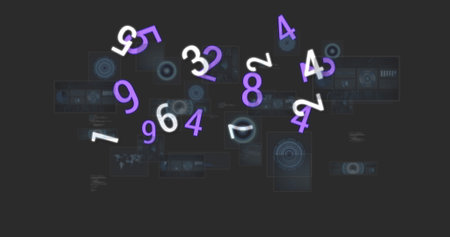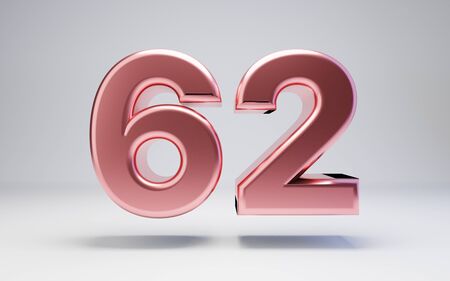Historical Roots of Fortune-Telling in the UK
The tradition of fortune-telling in the United Kingdom is deeply intertwined with its complex historical tapestry. Its origins can be traced back to the ancient Druids, whose mystical practices and reverence for nature formed a cornerstone of pre-Christian British society. These early spiritual leaders engaged in divination through observing natural phenomena, interpreting omens, and casting lots—methods believed to provide insight into the future and guidance from the spiritual realm. As centuries unfolded, these indigenous practices merged with influences from Roman and later Christian beliefs, creating a unique blend of folklore and superstition.
During the medieval period, fortune-telling evolved alongside shifting religious and societal attitudes. While ecclesiastical authorities often condemned such practices as heretical or pagan, popular demand for predictions and supernatural guidance persisted. It was not uncommon to find cunning folk—local wise men and women—consulted for everything from love advice to protection against misfortune. The Victorian era marked a significant turning point; spiritualism surged in popularity, fuelled by curiosity about the afterlife and a fascination with séances, tarot readings, and crystal gazing. This period also saw the emergence of public scepticism, as scientific rationalism began to challenge long-held superstitions. Despite these tensions, fortune-telling remained woven into the fabric of British culture, adapting to societal changes while retaining echoes of its ancient past.
2. Modern British Attitudes towards Fortune-Telling
In contemporary Britain, attitudes towards fortune-telling are nuanced and shaped by a complex interplay between cultural heritage and modern rationalism. While the fascination with psychic practices remains evident in popular culture and certain social circles, there is also a pervasive sense of scepticism rooted in scientific thinking and consumer protection. This duality is reflected in everyday conversations, media portrayals, and even legislative frameworks. The following table provides a systematic breakdown of common attitudes found across various demographics:
| Demographic | Typical Attitude | Common Expressions/Behaviours |
|---|---|---|
| Young Adults (18-30) | Curiosity mixed with irony | Visiting tarot readers for entertainment; sharing astrology memes online; often approaching with “tongue-in-cheek” humour |
| Middle-Aged (31-55) | Scepticism with selective interest | Engaging in fortune-telling at fairs or private events; using phrases like “take it with a pinch of salt” when discussing psychic claims |
| Seniors (56+) | Nostalgic respect or cautious dismissal | Recalling family traditions or stories; some may still consult local mediums, while others dismiss as “old wives’ tales” |
| Academic/Professional Circles | Predominantly sceptical | Debating the merits of critical thinking; referencing scientific studies; using terms such as “confirmation bias” or “placebo effect” |
| Cultural Communities (e.g., Romani) | Cultural preservation and pride | Maintaining traditional practices; emphasising the role of fortune-telling in community identity; often facing societal misunderstanding or stigma |
This diverse spectrum reflects broader UK trends: while many Britons enjoy fortune-telling as harmless fun or cultural tradition, widespread scepticism—reinforced by media exposés and consumer rights campaigns—shapes public discourse. Terms such as “charlatan”, “pseudoscience”, and “snake oil” are commonly heard in critical conversations, yet the persistent popularity of horoscopes, psychic hotlines, and spiritualist churches indicates an enduring appeal. Ultimately, the British approach to fortune-telling today is neither wholly credulous nor entirely dismissive; instead, it occupies a pragmatic middle ground that blends open-minded curiosity with healthy doubt.

3. Legal Framework and Regulation
The practice of fortune-telling in the UK exists within a well-defined legal framework shaped by both historical precedent and modern consumer protection concerns. Historically, acts such as the Witchcraft Act 1735 and the Fraudulent Mediums Act 1951 sought to control or prohibit supernatural claims. However, these have since been repealed or replaced, reflecting shifts in public attitudes towards both personal freedoms and consumer rights.
Today, the primary legislation governing fortune-telling falls under the Consumer Protection from Unfair Trading Regulations 2008 (CPRs). Under these regulations, it is illegal for individuals or businesses to mislead consumers with false claims or deceptive practices. Fortune-tellers must therefore avoid making absolute guarantees about outcomes or claiming supernatural powers that cannot be substantiated. This ensures that clients are not exploited or given false hope, aligning with broader efforts to protect vulnerable groups from financial or emotional harm.
Advertising standards also play a crucial role. The UK Advertising Standards Authority (ASA) monitors all forms of promotional material related to fortune-telling. Advertisements must be honest, truthful, and not exploit clients’ fears or vulnerabilities. Any suggestion that fortunes are guaranteed or that supernatural intervention is certain can lead to enforcement action by the ASA. Furthermore, disclaimers are often recommended, clarifying that services are for entertainment purposes only.
Collectively, these legal requirements reflect a balancing act: upholding individual freedom to practise traditional spiritual beliefs while ensuring that commercial activities do not cross ethical boundaries or infringe on consumer rights. This regulatory approach embodies the UK’s characteristic blend of respect for tradition and modern scepticism.
4. Popular Forms and Local Variations
Across the United Kingdom, fortune-telling encompasses a diverse array of practices, each with its own cultural resonance and regional peculiarities. While modern Britain is marked by a healthy scepticism towards mystical claims, certain methods have retained their popularity and have even evolved to suit contemporary sensibilities.
Common Methods Practised Today
| Method | Description | Prevalent Regions |
|---|---|---|
| Tarot Readings | Utilising a deck of symbolic cards to interpret personal questions or predict future events. | Nationwide, especially urban centres like London, Manchester, and Edinburgh. |
| Palmistry | The art of reading lines and shapes on the palm to reveal personality traits and life paths. | Traditional in English seaside towns; also found at fairs and markets across the UK. |
| Crystal Ball Gazing | Scrying into a crystal sphere for visions or insights, often associated with Romani heritage. | Notably present at fairs in Wales and the West Country. |
| Astrology | Analysing birth charts based on celestial positions to provide guidance on life choices. | Popular online and in urban communities with holistic wellness scenes. |
Regional Nuances
The UK’s regional diversity has given rise to local twists on these practices. For instance, Scottish fortune-tellers may incorporate elements of Celtic folklore, referencing ancient runes or invoking local legends during readings. In Wales, there is a tradition of ‘spirit mediums’ who claim connections with ancestral spirits—a practice intertwined with Welsh mythological beliefs. Northern England’s travelling fairs often feature Romani practitioners whose style is distinctively flamboyant and rich in oral storytelling.
Integration with Local Events
Fortune-telling frequently appears at seasonal festivals such as May Day celebrations or Christmas markets, where practitioners adapt their approach to suit the occasion. For example, tarot readers might focus on themes of renewal during springtime festivities, while palmists at holiday fairs often tailor their readings for entertainment value rather than serious prediction.
The Influence of Modern Technology
The advent of digital platforms has also shaped how fortune-telling services are accessed in the UK. Many traditional readers now offer consultations via video calls or social media, blending age-old techniques with modern convenience. This hybrid approach reflects both British adaptability and ongoing public curiosity about the unknown—albeit filtered through a lens of contemporary scrutiny.
5. Fortune-Telling in British Media and Pop Culture
Fortune-telling has maintained a prominent, if often ambivalent, presence in British media and pop culture. Across television, film, and literature, representations of fortune-tellers are used not only to entertain but also to probe the nation’s complex relationship with belief and scepticism. In these narratives, fortune-telling becomes a lens through which British society examines its own values, anxieties, and attitudes towards the unknown.
Television: From Satire to Sincerity
British television frequently deploys fortune-tellers as both comic relief and dramatic catalysts. Programmes like EastEnders or Coronation Street have featured psychic characters whose predictions stir gossip or conflict, reflecting everyday attitudes ranging from curiosity to outright disbelief. Meanwhile, panel shows such as QI or Would I Lie To You? might reference fortune-telling tongue-in-cheek, highlighting the cultural tendency toward gentle mockery of the mystical. Yet, shows like The Real Housewives of Cheshire occasionally present psychic consultations more earnestly, illustrating that belief persists in some circles despite widespread scepticism.
Film: Fortune-Tellers as Narrative Devices
In British cinema, fortune-tellers often serve as pivotal plot devices. For example, films set in the Victorian era—such as adaptations of Dickens novels—frequently feature seers who foreshadow events or reveal secrets. These portrayals typically blend intrigue with cynicism; filmmakers use fortune-telling to create suspense while subtly questioning its legitimacy. More contemporary films might lampoon psychic phenomena altogether, aligning with the British penchant for satire and rational enquiry.
Literature: Balancing Mystery and Rationalism
The literary tradition in Britain is replete with memorable fortune-tellers. Classic works like Shakespeare’s Macbeth, with its infamous witches and prophecies, exemplify how divination can drive narrative tension. Modern authors often approach the subject with a blend of fascination and irony—think of J.K. Rowling’s Professor Trelawney in the Harry Potter series: at once comically eccentric and occasionally prescient. This duality mirrors the national psyche’s oscillation between enchantment and doubt.
Scepticism versus Belief: A Cultural Dialogue
Across these media forms, there is a recurring motif: fortune-telling is rarely depicted without an undercurrent of scepticism. Characters may indulge in tarot readings or palmistry out of hope or desperation, but their experiences are frequently met with raised eyebrows or wry humour from others—a hallmark of British cultural discourse. Yet, moments of genuine belief do emerge, especially when stories explore personal loss or existential uncertainty.
The Enduring Appeal
The persistent representation of fortune-telling within British pop culture suggests it remains a potent symbol—one that encapsulates the ongoing tension between tradition and modern scepticism. Whether approached with irony or sincerity, these portrayals invite audiences to reflect on their own beliefs about fate, chance, and the search for meaning in an uncertain world.
6. The Role of Technology and Online Platforms
The digital revolution has fundamentally transformed the landscape of fortune-telling in the UK, introducing new dimensions to both accessibility and practice. Traditionally, Britons seeking psychic insights or tarot readings would visit local practitioners, often in person, at fairs or private homes. However, the proliferation of the internet and social media platforms has made fortune-telling services available at the click of a button, regardless of physical location.
Online platforms—ranging from dedicated websites to popular apps—have democratised access to fortune-tellers. Anyone can now book video consultations with mediums based in Brighton or email a tarot reader in Manchester, removing geographical barriers that previously limited choices. This technological shift has also encouraged a new generation of tech-savvy Britons to explore spiritual guidance in ways that fit their lifestyles.
Social media plays a dual role in this evolution. On one hand, Instagram and TikTok have given rise to influencers who share daily horoscopes, live tarot sessions, and astrology memes tailored to British humour and sensibilities. These platforms allow practitioners to build reputations and reach wide audiences quickly. On the other hand, the viral nature of content can sometimes blur the lines between authentic expertise and entertainment, raising questions about credibility and consumer protection—issues that resonate strongly within the UKs sceptical public discourse.
Moreover, technology has introduced new tools for self-reflection. Many British users now turn to AI-powered astrology apps or algorithm-driven personality quizzes as modern alternatives to traditional readings. While these tools are embraced for convenience and novelty, their impersonal nature may reduce the perceived authenticity associated with face-to-face interactions.
Ultimately, the integration of technology into fortune-telling practices exemplifies how British culture balances curiosity with caution. While online platforms have removed barriers and sparked renewed interest in ancient traditions, they have simultaneously heightened concerns over legitimacy and ethics. The challenge for practitioners—and clients alike—is to harness these digital opportunities without sacrificing critical thinking or cultural integrity.
7. Navigating Belief and Disbelief: A British Perspective
The British relationship with fortune-telling is shaped by a unique interplay of cultural tradition, entertainment value, and a strong undercurrent of rational scepticism. For many in the UK, fortune-telling sits at the intersection of nostalgia for bygone eras, a desire for light-hearted amusement, and an ingrained respect for empirical thinking that has long characterised British society.
Tradition as Cultural Currency
Historically, practices such as tarot reading or palmistry have been woven into the fabric of local fairs, seaside towns, and village fetes. These traditions persist not only due to genuine belief but also because they represent a shared cultural currency—a nod to the country’s folklore and mystique. For some, participating in fortune-telling sessions is less about seeking prophetic insight and more about engaging with heritage and communal experiences.
The Allure of Entertainment
Contemporary Britons often approach fortune-telling as a form of entertainment. Whether it’s a group tarot session at a hen do or a quirky psychic stall at a Christmas market, the focus is frequently on fun rather than faith. This entertainment-based approach allows individuals to enjoy the mystery without necessarily subscribing to its supernatural claims, treating it much like any other pastime rooted in curiosity and social interaction.
Rational Scepticism in Modern Britain
At the same time, rational scepticism remains prevalent. The UK’s robust scientific tradition and emphasis on critical thinking mean that many people scrutinise fortune-telling with a healthy dose of doubt. Media outlets and educational institutions often reinforce this perspective by highlighting the lack of empirical evidence behind divinatory practices. As a result, public opinion tends to oscillate between intrigue and incredulity.
Personal Navigation: Balancing the Spectrum
Individuals in the UK navigate this spectrum in nuanced ways. Some embrace fortune-telling as harmless fun or cultural exploration, compartmentalising their enjoyment from their logical worldview. Others might hold private beliefs while outwardly expressing scepticism, mindful of social perceptions. Ultimately, the British approach is characterised by an ability to balance reverence for tradition with playful participation and thoughtful scrutiny—a dynamic negotiation between belief and disbelief in an ever-evolving cultural landscape.


